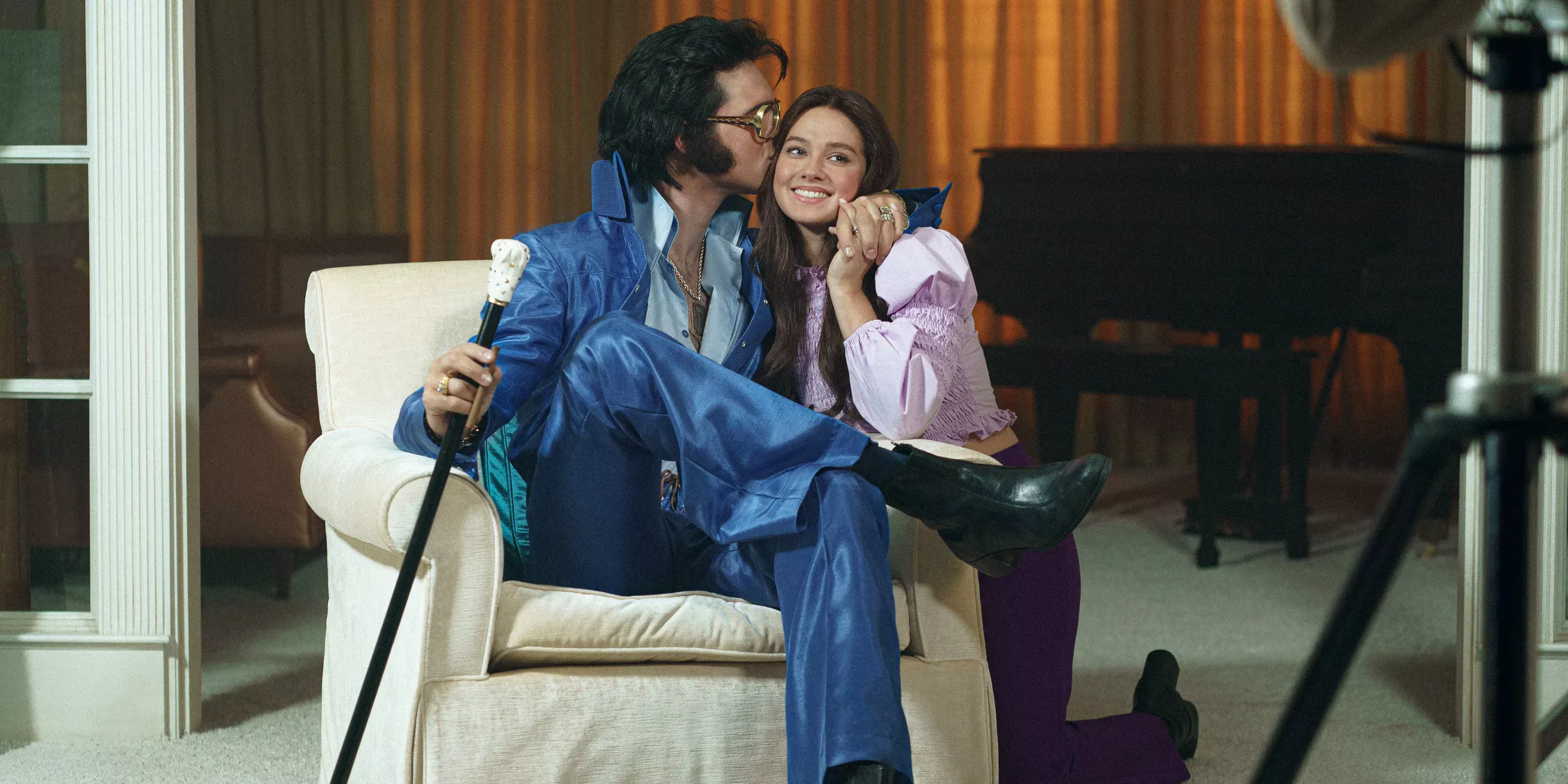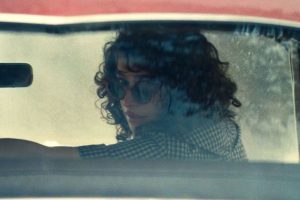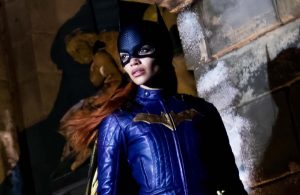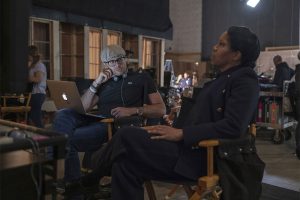
Elvis Presley. One of music and the world’s most legendary figures. He has been so discussed and deified for the past fifty years or so that it’s hard to even think of him as a real person. Last year, Baz Luhrmann tried to provide new perspective with his film Elvis, depicting a tragic portrayal of a man manipulated by an abusive manager and system and drug abuse, a man falling apart and into the vice of a needing to please everyone. While certainly showing Elvis as a flawed being, that film ultimately feels like an apology for him.
Enter Sofia Coppola and her film Priscilla. Though Coppola cites only the book her film is based on as inspiration, one can’t help but feel like the film is a response to Elvis — one that focuses not on the legend of Elvis, but on the realities of a 14-year-old girl living out a teenage dream while almost certainly being groomed by a celebrity ten years her senior. The film is plainly a romance, but not one that romanticizes the romance at its center.
The greatest strength of the film is Coppola’s non-judgmental camera and direction. A lesser director might have made this story far too broad and simple, making Elvis into a horrible abusive monster and Priscilla into a hapless victim. But Priscilla isn’t out to demonize Presley as much as shed a light on the perspective of Priscilla, a teenager who was understandably living out many confused thoughts and feelings.
The film opens with her living with her family in Germany, taken from her home in Texas and feeling trapped and friendless. Elvis appears like a savior to her, the handsome god of rock who was infatuated with her. As we watch in 2023, we as an audience are certainly perturbed by seeing an adult man romance a young teenage girl. The film’s script certainly has dialogue that highlights this. But Coppola’s camera never makes these events that simple. We live firmly in Priscilla’s perspective and can see why Elvis presented an escape from her frustrations. Not to mention, he was the handsome heartthrob of America.
But as we see their romance continue, the inequities of it become more and more evident. Elvis isn’t a stereotypical sex maniac or woman-beater, and his outright charm is on display, well played by Jacob Elordi. You can see why women swooned for him, as did everyone around him. A modern audience may be shocked to see Priscilla’s parents repeatedly approving their teenage daughter going to visit Elvis, including flying overseas to live with him, but Elordi embodies why Elvis might have convinced her parents to allow this. He may not match the largeness of Austin Butler‘s performance, but he feels like a more realistic version.
It is instead the subtle issues of the relationship that make the flaws and drama of the film apparent. Elvis’s need to be in control of the relationship and its terms become more and more shackles on Priscilla, who wants to express her independence but is afraid the dream will come to an end if she displeases Elvis. Whether it’s his control over her relationships, having a job, or the sexual acts they perform together, Coppola weaves a portrait that tells a giddy yet sad story.
This whole dynamic is brought to life brilliantly by lead actress Cailee Spaeny. She brings such a tenderness to the role, convincingly playing a young teenager. The subtle changes as her character ages throughout the film’s runtime are a feather in the cap of this actress’s excellent performance. Hats are also off to the makeup and styling crew, whose work takes an actress and makes her both look 14 and 24. Spaeny’s youthful looks aid this effort, but the work of costuming and makeup and the value it brings to a film couldn’t be more evident here.
Not to mention how well it captures the time period. The costuming and set design all feel genuine, and you never question that you’re watching a film from that era, even if Elordi doesn’t look especially like Elvis when his face replaces The King’s on iconic album covers and magazine photos. The soundtrack also pops with many iconic tracks of the period, though it notably excludes any songs from Elvis himself.
The largest flaw of Priscilla is its rather abrupt ending and truncated third act. The film begins to rely too much on montage for storytelling, meaning you don’t get a feeling for just what drove Priscilla to finally call an end to the relationship. The film is reluctant to show any flaws of Priscilla herself, including the affairs she had while married to Elvis. While this may be an attempt not to distract from the heart of the film, it does leave the final portions feeling a little more shallow than they could be.
Priscilla is still a lovely portrait of a passionate and highly flawed romance. While the relationship is undoubtedly wrongful, Sofia Coppola and her talented leads lend it all a wonderful nuance and depth that make the film fascinating rather than enraging. The film shows that Priscilla was truly in love with Elvis, as was Elvis with her. But she was also someone who felt trapped in the shackles of a domineering relationship and one that eventually no longer worked. The film is a bold move in helping draw away some of the mythos around one of pop culture’s most famous personas, and it show the flaws of idolizing someone who was very much full of flaws. It also helps us to remember that Priscilla Presley was very much her own person, one that both loved and was manipulated all in one.






